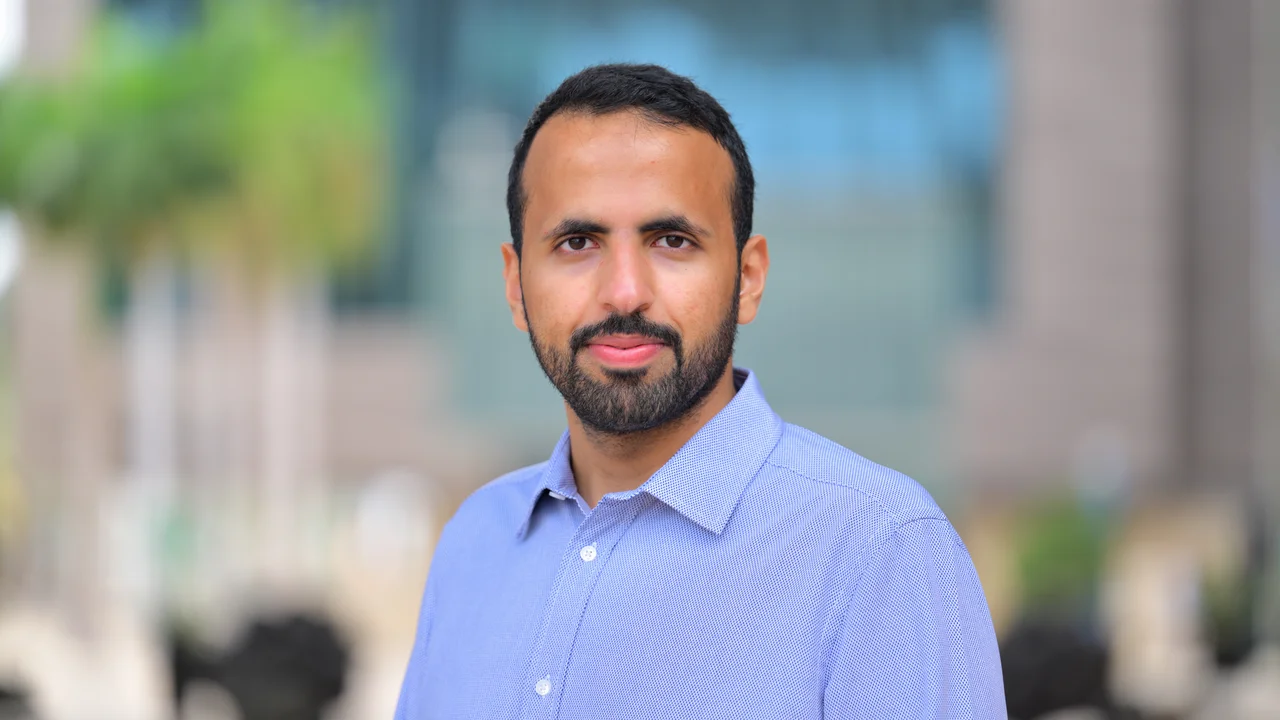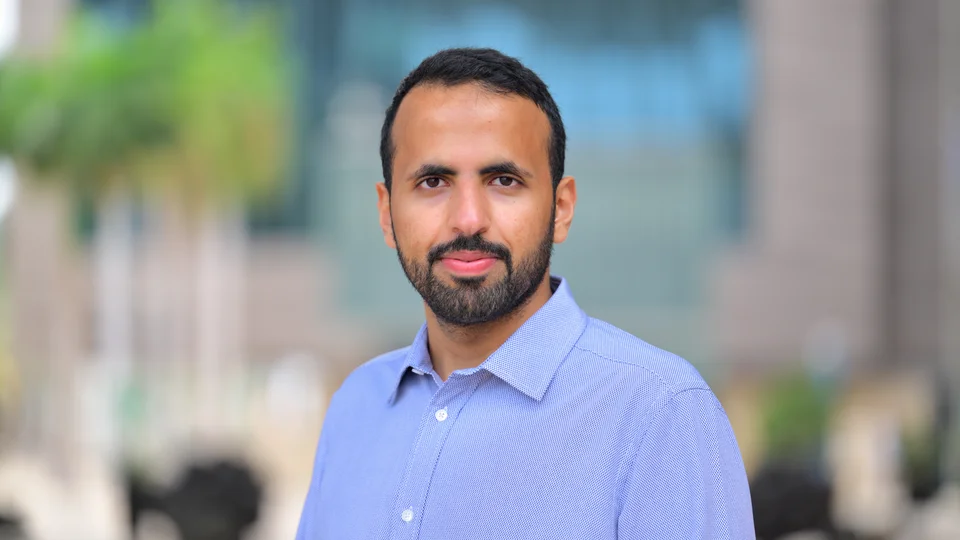
CEMSE New Faculty: Abdulrahman Alhamed, assistant professor of electrical and computer engineering
About
CEMSE Professor Abdulrahman Alhamed’s research path was formed by a deep recognition of the pivotal role integrated circuits play in shaping the modern world.
“While there was no single 'eureka' moment, my progression into academia was deliberate and purpose-driven,” he noted. “I was fortunate to have mentors who challenged me early on and environments that cultivated intellectual rigor.”
Dr. Alhamed is an assistant professor of electrical and computer engineering, specializing in RF integrated circuits and systems. His research spans transceivers, phased arrays, radar systems and creating hybrid beamforming architectures for 5G/6G telecommunications, satellite communications (SATCOM) and advanced sensing applications.
At KAUST, he leads the Integrated Telecommunication and Sensing Systems (ITASS) group. The group focuses on millimeter-wave (mmWave) and sub-terahertz (>90 GHz) technologies.
Alhamed’s immediate goal at KAUST is to establish a world-class research lab that is capable of producing innovative prototypes and impactful results. In parallel, he aims to establish strong interdisciplinary connections with local and international peers to drive the integration of circuit design with photonics, artificial intelligence and communication theory.
At present, Alhamed remains committed to advancing the frontiers of Radio Frequency Integrated Circuit (RFIC) design and mentoring the next generation of researchers and leaders who will shape the future of semiconductor technologies.
“It’s a great privilege to join KAUST at such a pivotal moment in its evolution. I am excited to contribute to its mission and to help shape the future of semiconductor innovation in the Kingdom and beyond.
“Strategically, I plan to contribute to making KAUST a global leader in integrated circuits innovation by bridging academic research with real-world deployment, particularly in areas critical to Saudi Arabia’s digital infrastructure,” he emphasized.
Leading the advancements of tomorrow
The ITASS lab at KAUST is developing critical technologies—phased-array transceivers, mmWave radar sensors, and hybrid beamforming systems—to power future wireless networks, autonomous systems, SATCOM, and digital twin technologies. The application potential of the team’s research ranges from ultra-fast last-mile connectivity to real-time industrial sensing and national infrastructure resilience.
“The ITASS lab aims to advance the frontiers of wireless communication and sensing technologies, with applications spanning 6G networks, SATCOM and high-resolution radar,” he explained.
Alhamed firmly believes this research directly supports the Kingdom’s long-term development goals.
“Integrated circuits are the enabling engine behind nearly every technology, and my work contributes to several of the RDI pillars.
“Our work supports the Energy and Industrial Leadership theme by developing efficient, reliable, and scalable semiconductor solutions for industrial automation and environmental monitoring. By cultivating local talent and intellectual property, we also contribute to Vision 2030’s goals of technological sovereignty and innovation-driven economic diversification.”
Career journey
Alhamed earned his Ph.D. in electrical and computer engineering from the University of California, San Diego, U.S. Before joining KAUST, he worked as a senior technical staff member in Apple Inc.’s Silicon Engineering Group, contributing to 5G millimeter-wave (mmWave) cellular chipsets. He also worked at Nokia Bell Labs in the Application-Specific Integrated Circuit (ASIC) Group, focusing on mmWave communication circuits.
His research has been published in leading IEEE journals, including the IEEE Journal of Solid-State Circuits and journals of the IEEE Microwave Theory and Technology Society.
An ever-evolving path
Alhamed’s advice to his younger self, to KAUST students in his field, and aspiring researchers more broadly is simple: build a strong foundation in the fundamentals while staying engaged with emerging technologies.
“Engage actively in research opportunities, seek mentorship, and remain curious. The field of integrated circuits is ever-evolving, and those who are adaptable and committed to continuous learning will lead the advancements of tomorrow.”
